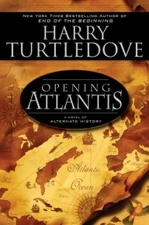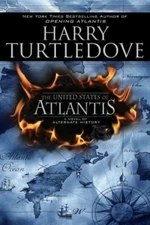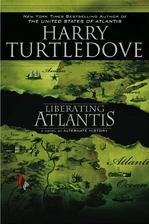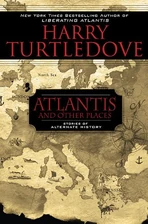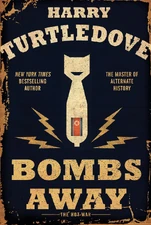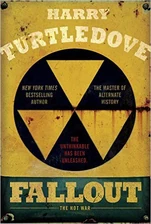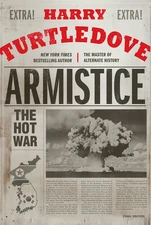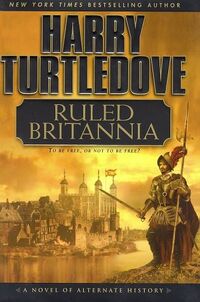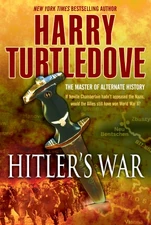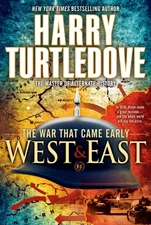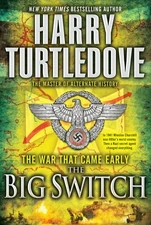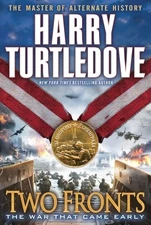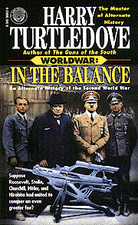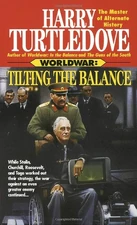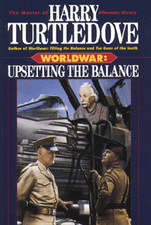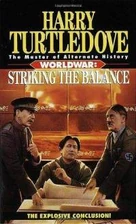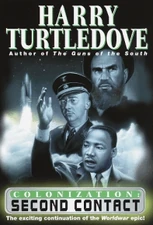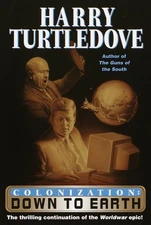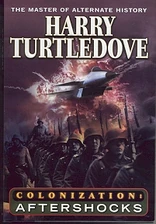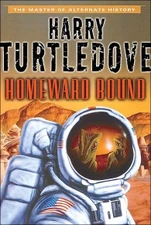| Republic of Austria
|

|
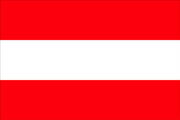
|
| Country
|
| Continent:
|
Europe
|
| Capital:
|
Vienna
|
| National Language:
|
German
|
| Government:
|
Federal parliamentary republic
|
| Status in OTL:
|
Active
|
The Republic of Austria is a German-speaking parliamentary democracy in Central Europe. It is bordered by the Czech Republic and Germany to the north, Hungary and Slovakia to the east, Slovenia and Italy to the south, and Switzerland and Liechtenstein to the west.
Under the rule of the House of Hapsburg, Austria was the nucleus of a substantial land-empire from the 15th century through the early 20th century. Using a mixture of marriage, hereditary right, and conquest, Austria absorbed territories, provinces, and whole countries, most notably Hungary.
Prussia arose in the 18th century to challenge Austria's role as preeminent German state. Throughout the 19th century, Austria's influence began to wane, especially as the modern German state emerged, built around Prussia. A critical step in the unification of Germany was Austria's defeat at the hands of Prussia in 1866, after which Austria quickly lost influence among the other German states.
Shortly afterwards, the weakened Austrian government agreed to a Dual Monarchy with Hungary, abandoning its attempts to treat Hungary as a mere province and granting it near-total autonomy. Both nations continued to have the Hapsburg emperor as head of state, as well as common foreign and military policies, but were otherwise separate. The many other ethnicities in the Austro-Hungarian Empire remained second-class citizens, particularly in the Hungarian territories.
Despite past military defeat, Austria allied itself with Germany throughout the remainder of the 19th century and into the early 20th century. Austria's invocation of this alliance in the aftermath of the assassination of Archduke Franz Ferdinand helped trigger World War I in 1914. Austria capitulated in 1918, and was stripped of its empire. The former imperial family would remain in exile until the 1960s.
Austria was briefly a democratic republic during the 1920s, but by the 1930s, Fascism had taken hold. In 1938, however, Austria was officially annexed by Nazi-dominated Germany, and remained part of the Greater German Reich until the end of World War II. After a period of Allied occupation, Austria once again became an independent republic in 1955.
Austria in Atlantis
Austria's ongoing conflict with Prussia helped touch off fighting in Atlantis.[1]
Austria was overrun by the Soviet Union quickly in the opening weeks of World War III, allowing the Soviets to make their way into northeastern Italy.[2]
This article or subsection is a stub because the work is part of a larger, as-of-yet incomplete series.
Nicole Gunther went as a tourist to Austria and visited the ruins of the Roman city of Carnuntum, where she bought a plaque of the gods Liber and Libera which she took with her back to America, not knowing that a remote ancestress of hers had lived in that city. Eventually, when she felt fed up with life in the modern Los Angeles, the two Roman gods transported her to that city in the Second Century, where she lived in the body of her ancestress. She found the city and the whole of what would become Austria a province of the Roman Empire, whose inhabitants spoke Latin (though with a provincial accent), identified themselves as Romans and regarded the Germanic tribes invading the city with hostility and disdain. Nicole Gunther was the only one who knew that their descendants would be German-speaking Austrians, and she kept this knowledge to herself.[3]
The Ostmark (although it was still known informally as Austria even into the 21st Century[4]) was absorbed into Germany a year prior to World War II as part of a union (German, "Anschluss") with Nazi Germany. Its largest city was Vienna. The Reich's first Führer, Adolf Hitler, and its third, Kurt Haldweim,[5] were born in Austria.
During the 2011 Reichstag elections, held after the failed Putsch against Heinz Buckliger, Austria split among the conservative Nazis (who carried rural Austria) and the reformers (who carried Vienna).[6]
In March 1938, Nazi Germany annexed Austria, rearranging the map of Europe.[7] Adolf Hitler then began making demands on Czechoslovakia.[8] Austria remained part of Germany until after World War II.
In the United States, AP reporter Charlie Sullivan was attempting to explain the situation in a way that made sense to the average American when his wife Esther called to tell him she'd gone into labor.[9]
Austria was detached from Germany and occupied by the Allies after World War II. The Allies suspected that the German Freedom Front maintained bunkers in Austria, [10] and the Soviet zone saw some rebellion,[11] but the GFF concentrated its efforts in Germany proper.
By the 1770s, Austria and other territories under Hapsburg rule were face with the encroachment of the Sabbateans.
By the late 22nd Century, Austria had merged with other Western European countries forming United Europe. As such, it had its autonomy reduced to something like that of a state in the United States.
Austria was ruled by Emperor Rudolf II, a member of the Hapsburg dynasty, a powerful Catholic royal family in Europe. Rudolf's uncle Philip II was king of Spain. In 1588, a marriage was arranged between Rudolf's brother Albert and Philip's daughter Queen Isabella, the new monarch of England.[12]
The Austrian Empire, ruled by the House of Hapsburg, was considered a European power given its geographic position, but not a global one, given the limited territory it controlled. Its natural direction of expansion in a south-easterly direction into the Ottoman Empire was blocked by the fact that the latter was a British protectorate. Instead, Austria intrigued in the Italian States against the Holy Alliance and in the German States against Prussia and Russia in addition to the Alliance.
Count Friedrich-Maria von Hötzendorf, Austria's ambassador in Victoria, silently expressed dismay over his empire's limitations after remarking on the sheer scope of Thomas Bushell's search for one lost painting across the vast expanse of the North American Union.[13]
Austria was annexed by Germany mere months before Germany attacked Czechoslovakia in October 1938, which in turn triggered the Second World War in Europe.[14] The annexation gave Germany a third shared border with Czechoslovakia, and a critical launch pad for the invasion in October 1938, since the fortifications weren't as strong there.[15]
In 1944, after Adolf Hitler and the Nazis were overthrown by the Committee for the Salvation of the German Nation and Germany reached a peace with the rest of Europe, Germany nonetheless kept possession of Austria on the grounds that the Anschluss took place months before the outbreak of war.[16] The Allies were not interested in pressing the issue.[17]
Many of the last remaining Nazi hold-outs made their last stand in Austria in Summer, 1944.[18]
By the terms of the 1944 Peace of Cairo, Austria remained part of the Greater German Reich.[19] The Race did not seek to detach Austria from Germany after the Race-German War of 1965.[20]
See also
References
- ↑ Opening Atlantis, pg. 266.
- ↑ Bombs Away, pg. 134, ebook.
- ↑ see Household Gods generally.
- ↑ See Inconsistencies in Turtledove's Work#Inconsistencies in In the Presence of Mine Enemies
- ↑ In the Presence of Mine Enemies, pg. 50.
- ↑ Ibid. pg. 444.
- ↑ Joe Steele, pg. 195.
- ↑ Ibid., pg. 196.
- ↑ Ibid.
- ↑ The Man With the Iron Heart, pg. 78
- ↑ Ibid., pg. 230.
- ↑ Ruled Britannia, generally.
- ↑ The Two Georges, pgs. 492-493, MPB.
- ↑ Hitler's War, pg. 9.
- ↑ Ibid., pgs 21-2.
- ↑ Last Orders, pgs. 318-320.
- ↑ Ibid. pg. 341.
- ↑ Ibid., pg. 382.
- ↑ Striking the Balance, pg. 375
- ↑ See Aftershocks, generally.
| Countries of Europe |
|---|
| | Sovereign states (OTL) | | | | Relevant Former Countries (OTL) | | | | Fictional Countries | | | | A Partially in Asia, or entirely in Asia with cultural links to Europe. |
|
| Atlantis |
|---|
| | Books | | | | | Short Stories | | | | POV Characters | | | | Geography | | | | Atlantean cities | | | | Events | | | | Religion | | | | Fauna | |
|
| The Hot War |
|---|
| | Books | | | | | POV Characters | | | | Countries | | | | Events | | |
|
1=denotes a character who was a POV for one volume or less
2=denotes a character who was a POV for two volumes
3=denotes a character who was a POV for three volumes
† Denotes a deceased POV.
| |
|
| Joe Steele |
|---|
| | Works | |  | | | POV Characters | | | | Secondary Characters | | | | Events | | | | Geography | |
|
| The Two Georges |
|---|
| | POV Characters | |  | | | Secondary Characters | | | | Geography | | | | Organisations | | | | Titles | | | | Technology | | | | Events | |
|
| The War That Came Early |
|---|
| | Books | | | | | POV Characters | | | | Countries | | | | Events | | |
*=denotes a character who was a POV for a single scene
1=denotes a character who was a POV for one volume
2=denotes a character who was a POV for two volumes
3=denotes a character who was a POV for three volumes
|
4=denotes a character who was a POV for four volumes
5=denotes a character who was a POV for five volumes
6=denotes a character who was a POV for six volumes
† denotes a deceased character.
| |
|
| Worldwar |
|---|
| | Books | | | | | Human POV Characters | | | | Race POV Characters | | | | Geography | | | | Events | | |
|
† = Death depicted or alluded to
1 = POV in every single volume
2 = POV in Worldwar and Colonization Series
W = POV in Worldwar series only
|
C = POV in Colonization series only
5 = POV in Colonization series and Homeward Bound
H = POV in Homeward Bound only
|
|
|


